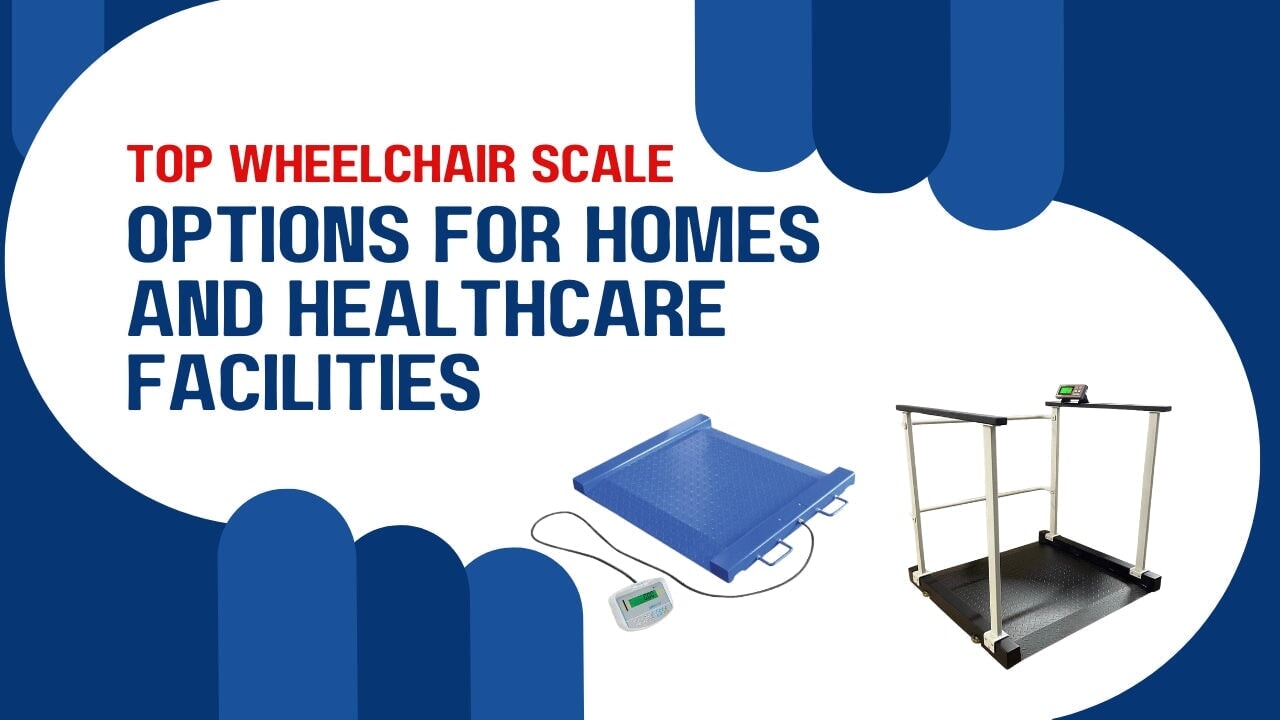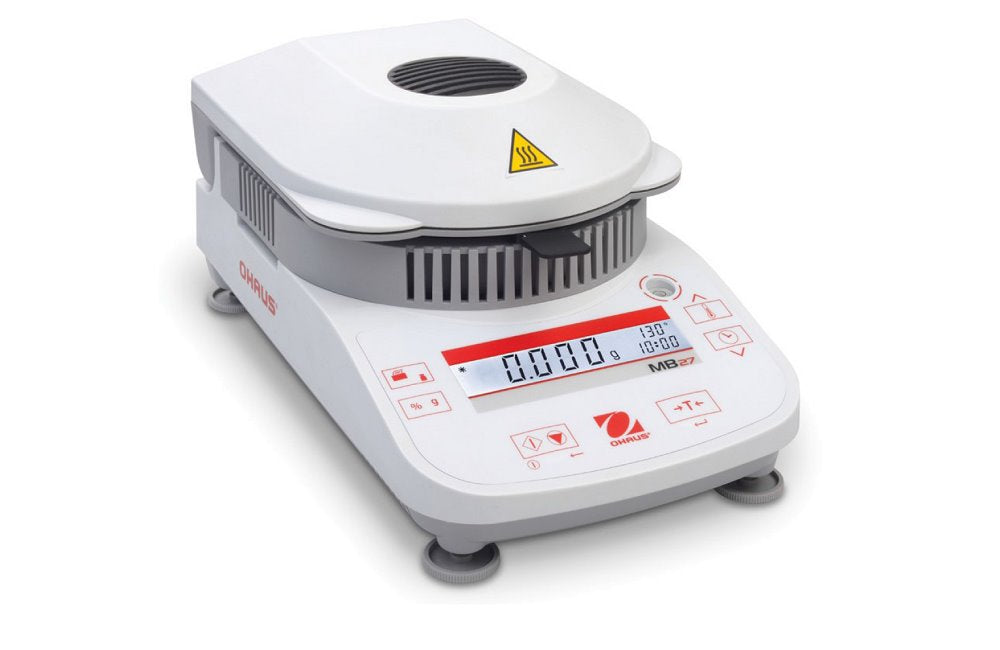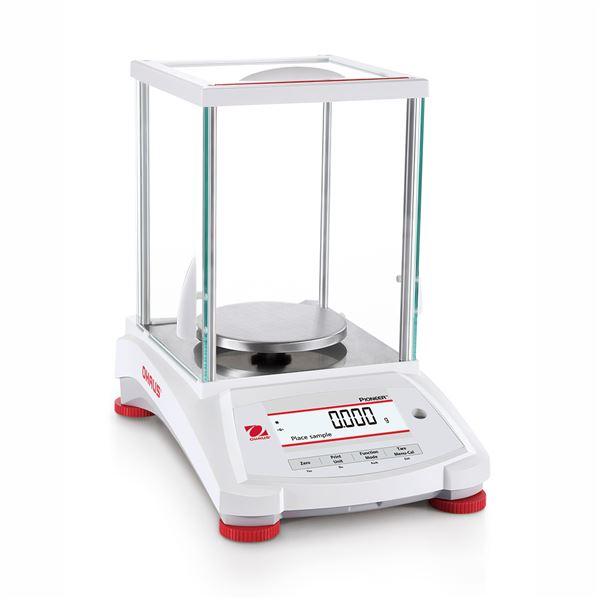A wheelchair scale is a device used to weigh people in wheelchairs accurately. These scales are used in various healthcare settings, including hospitals and nursing homes, emphasizing their importance in accurately weighing patients with mobility challenges. These scales are essential in healthcare for reliable weight measurements. This article reviews top wheelchair scales, their features, benefits, and tips for accurate use.
Key Takeaways
-
Wheelchair scales are essential for accurate weight measurements in healthcare settings, including hospitals and nursing homes, improving patient care by aiding in medical evaluations and treatment plans.
-
Key features to consider when selecting wheelchair scales include a robust platform, high weight capacity, and easy-to-read displays to ensure safety and reliability.
-
Top models of wheelchair scales like Model A, Model B, and Model C offer advanced features such as memory recall, ramp designs, and EMR connectivity, enhancing usability and accuracy for healthcare professionals.
Understanding Wheelchair Scales
Wheelchair scales are specialized devices for accurately weighing individuals in wheelchairs, making them indispensable in healthcare settings for precise weight measurements critical to patient care and medical assessments. These scales are used in various healthcare settings, including nursing homes, to ensure accurate weight measurements for patients with mobility challenges. The seca 664 wheelchair scale, for instance, is engineered specifically to deliver accurate readings, ensuring that patients in wheelchairs receive the best possible care.
These scales often feature a platform to position the wheelchair, enabling accurate calculation of the total weight, including the user. This setup ensures patient stability and safety during the weighing process. High weight capacity is another important feature, accommodating individuals with diverse weight needs and ensuring that no patient is left behind due to the limitations of the scale.
Engineered for high precision, usually within a margin of 0.2 pounds, these scales provide accurate readings essential for medical evaluations and treatment plans. Understanding their functionality helps caregivers and healthcare professionals appreciate their crucial role in patient care.
Benefits of Using Wheelchair Weight Scales

Wheelchair scales offer numerous benefits in healthcare facilities, rehabilitation centers, and home care settings by providing accessible weight measurements, which significantly enhance the quality of care for patients with disabilities. These scales are also beneficial in various healthcare settings, including nursing homes, by providing accessible weight measurements for patients with disabilities. Accurate weight measurements are crucial for administering proper medication dosages, monitoring health conditions, and making informed medical decisions.
Top wheelchair scales cater to both home and healthcare facility use, guaranteeing accuracy and convenience. For patients with limited mobility, these scales provide an easy and reliable way to monitor weight regularly, aiding in overall health management.
Investing in wheelchair weight scales allows caregivers to enhance their care, ensuring all patients receive the attention and accuracy they deserve.
Key Features to Consider in Wheelchair Scales
Several key features should be considered when choosing wheelchair scales to meet the needs of patients and caregivers. These features are crucial for ensuring accurate and reliable weight measurements in various settings, including nursing homes. A robust platform ensures stability and safety during weighing, while high weight capacity accommodates a variety of patient needs effectively.
Easy-to-read displays improve the accuracy of weight measurements, making it simpler for caregivers to record and monitor patient data. These features collectively ensure that wheelchair weight scales offer accurate and reliable measurements.
Large Platform
A large platform is crucial for wheelchair scales, ensuring stability and accommodating various wheelchair sizes. This is particularly important for patients using bariatric or motorized wheelchairs, which need more space for accurate and safe weighing. The design of Model B, for instance, includes a large weighing platform that can comfortably support bariatric and motorized wheelchairs, ensuring all patients can be weighed without issue.
Some models, like Model C, feature an in-floor design, allowing the weighing surface to be level with the floor, reducing trip hazards and easing patient access. These designs enhance safety and improve the overall user experience, making the weighing process smoother and more efficient.
High Weight Capacity
High weight capacity is another critical feature in wheelchair scales. Some can support weights up to 1000 lbs, accommodating larger patients without compromising safety and ensuring the scale serves a diverse range of individuals.
Model B, for instance, supports up to 880 pounds, making it suitable for various patient needs. It also features a battery-operated system that offers approximately 10,000 weigh cycles, enhancing its usability and reliability in different settings.
Such features ensure that the scale remains functional and provides accurate measurements over an extended period, delivering consistent and dependable weight measurements.
Easy-to-Read Displays
Easy-to-read displays are key for accurate weight measurements. Larger displays with one-inch tall digits improve visibility, making it easier for patients and caregivers to see the weight readings.
Models like Model C feature advanced digital readouts, enhancing visibility and ease of use. Clear displays significantly improve the accuracy of weight measurements, aiding better health management and care.
Types of Wheelchair Scales

Various types of wheelchair scales are available, each catering to specific user needs. Different types of wheelchair scales are suitable for various settings, including nursing homes, depending on the specific needs of the patients. These include portable, stationary, and scales with handrails, each offering unique features and benefits. Choosing the right one depends on the patient’s specific requirements and the intended setting.
Portable Wheelchair Scales
Portable wheelchair scales offer significant convenience, making them ideal for various settings. They are lightweight and often feature a folding design, simplifying storage and transport. Model A, for example, is known for its lightweight design and folding capability, making it easily portable and perfect for limited spaces.
Advanced portable wheelchair scales often include graphic displays that enhance visibility and user-friendly navigation. These features make them versatile for healthcare professionals needing to move the scale between locations or for home care providers requiring a compact, easy-to-use solution.
Stationary Wheelchair Scales
Stationary wheelchair scales are designed for enhanced stability and can typically accommodate higher weight limits. They provide a stable and secure platform for weighing patients, making them ideal for healthcare facilities requiring robust and reliable equipment.
Models like Model C provide exceptional stability during weighing, enhancing user safety. Stationary wheelchair scales often feature flexible remote displays, allowing healthcare professionals to see measurements clearly from various angles, improving usability and accuracy.
Wheelchair Scales with Handrails
Scales with handrails and side rails provide additional support and safety during weighing. Handrails offer security, especially for patients with limited mobility, reducing fall risk and enhancing overall safety.
These scales are particularly beneficial in rehabilitation centers, where patients may need extra support during recovery. The security provided by handrails ensures safe and comfortable weighing, improving the overall experience.
Ensuring Accuracy in Weight Measurements

Accurate weight measurements are vital for medical evaluations, medication management, and overall health monitoring. Accurate weight measurements are also crucial in various healthcare settings, including nursing homes, for informed medical decisions and patient care. Wheelchair scales provide precise measurements when used properly, requiring secure positioning and regular calibration. Accurate weight measurements are crucial for informed medical decisions and ensuring the best possible patient care.
Regular upkeep of wheelchair scales includes cleaning, checking for damage, and adjusting calibration as per manufacturer instructions. Using the tare function eliminates the weight of the wheelchair and accessories before weighing the patient, ensuring accurate patient weight recording.
Following these practices helps caregivers maintain the accuracy and reliability of their wheelchair scales.
Top Models of Wheelchair Scales

Top wheelchair scale models enhance the workflow of healthcare professionals by facilitating accurate weight measurements for wheelchair users. These top models are suitable for use in various healthcare settings, including nursing homes, due to their advanced features and reliability. Brands like Attendant, Rice Lake, and Detecto are recognized for their quality and accuracy, offering reliable solutions for healthcare settings.
These models often integrate with electronic health records (EMR) systems, improving data sharing and accuracy.
Model A: Features and Benefits
Model A features a dual-ramp design, providing easy access from either side, enhancing usability in clinical settings. It also includes antimicrobial technology, ensuring continuous protection against bacteria and maintaining a hygienic environment.
These features make Model A a versatile and reliable option for healthcare professionals.
Model B: Features and Benefits
Model B offers a memory recall function that stores the last measured weight for convenience. This feature is particularly useful in clinical settings where tracking patient weight over time is essential for monitoring health and treatment progress.
Model C: Features and Benefits
Model C is known for its state-of-the-art weight detection system, enhancing precision when weighing individuals in wheelchairs. The integrated ramp design simplifies access, making the weighing process smoother and more efficient. It has been highly praised for reliability in clinical settings, providing consistent accuracy and ease of use for caregivers managing multiple patients.
Compared to other models like Model A and Model B, Model C stands out for its superior accuracy in weight measurement. Users report high satisfaction, noting that the scale’s advanced features and robust design significantly enhance the weighing experience.
Additionally, Model C includes safety features not present in other leading models, ensuring reliable performance for both patients and caregivers. Overall, Model C’s advanced technologies and user-friendly design make it a top choice for healthcare professionals seeking reliable and precise weight measurement solutions.
Connectivity and Integration
In today’s digital age, EMR connectivity is essential for modern wheelchair scales. This feature enables seamless integration into healthcare systems, enhancing workflow for professionals and ensuring accurate, easily accessible patient data. EMR connectivity and integration are beneficial in various healthcare settings, including nursing homes, for improving workflow and patient data management.
Connecting with electronic health records (EMR) systems eliminates the need for physical connections, making it more convenient for healthcare providers to manage patient information and improve overall care delivery.
Where to Purchase Reliable Wheelchair Scales
Reliable wheelchair scales can be purchased from various sources, including medical supply companies, specialized retailers, and online marketplaces. Reliable wheelchair scales are essential for various healthcare settings, including nursing homes, to ensure accurate and efficient patient weighing. Direct Supply, for example, offers a range of wheelchair scales tailored for medical environments, ensuring accurate and efficient patient weighing. When choosing a supplier, consider their reputation, the quality of their products, and the after-sales service they provide.
Selecting a supplier that offers reliable products and additional services such as maintenance and support can greatly enhance the user experience. Investing in high-quality wheelchair scales from reputable suppliers ensures healthcare professionals and caregivers are equipped with the best tools for accurate and reliable weight measurements.
Summary
In summary, understanding wheelchair scales and their key features is essential for providing accurate weight measurements and enhancing the quality of care for patients in wheelchairs. Wheelchair scales are important for various healthcare settings, including nursing homes, to provide accurate weight measurements and enhance patient care. From large platforms and high weight capacities to easy-to-read displays, each feature plays a crucial role in ensuring the scales meet the diverse needs of patients and caregivers. Different types of wheelchair scales, including portable, stationary, and those with handrails, offer unique benefits, making it important to choose the right one based on specific requirements.
Top models like Model A, Model B, and Model C demonstrate the advancements in wheelchair scale technology, offering features that enhance usability, accuracy, and safety. By investing in reliable wheelchair scales and ensuring they are properly maintained and integrated with healthcare systems, caregivers and healthcare professionals can significantly improve patient care and management. Remember, the right wheelchair scale is not just a tool but a vital part of providing the best possible care for individuals with limited mobility.
Frequently Asked Questions
How do doctors weigh people in wheelchairs?
Doctors typically use specialized scales with a built-in ramp or platform for wheelchairs, or they may use the tare method, weighing the empty wheelchair first to then accurately measure the patient's weight alone. This ensures an accurate and efficient weighing process for individuals in wheelchairs.
What is a wheelchair scale?
A wheelchair scale is a specialized device designed to weigh individuals seated in a wheelchair, often featuring handrails for safety and digital output for electronic health records. These scales are particularly beneficial for overweight or elderly patients requiring secure weight measurements.
What are wheelchair scales?
Wheelchair scales are specialized weighing devices that accurately measure the weight of individuals in wheelchairs, providing a stable platform for both the user and their chair. They ensure precise weight assessment, which is essential for healthcare and mobility management.
Why are large platforms important in wheelchair scales?
Large platforms are essential in wheelchair scales as they provide the necessary space to accommodate different wheelchair sizes, ensuring stability and safety during weighing. This feature promotes accurate measurements while enhancing user confidence.
What are the benefits of using portable wheelchair scales?
Using portable wheelchair scales is highly beneficial as they provide convenience and flexibility for weighing individuals in various settings due to their lightweight and foldable design. This functionality enhances accessibility and improves the overall care experience for users.





